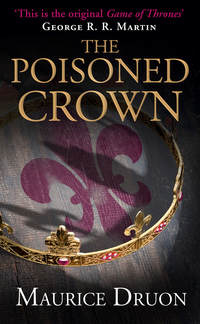The Iron King

Полная версия
The Iron King
Жанр: фэнтезиисторическая литературасовременная зарубежная литературазарубежное фэнтезиисторическое фэнтезисерьезное чтениеоб истории серьезно
Язык: Английский
Год издания: 2019
Добавлена:
Настройки чтения
Размер шрифта
Высота строк
Поля
Конец ознакомительного фрагмента
Купить и скачать всю книгу







